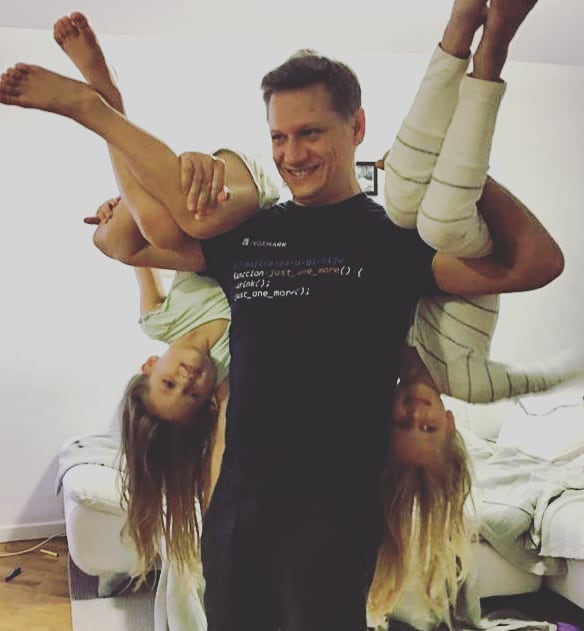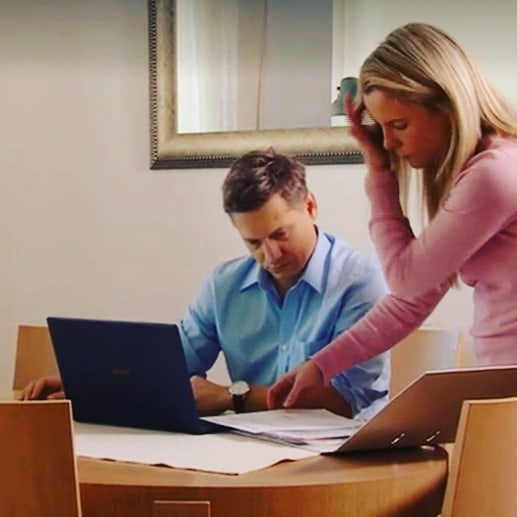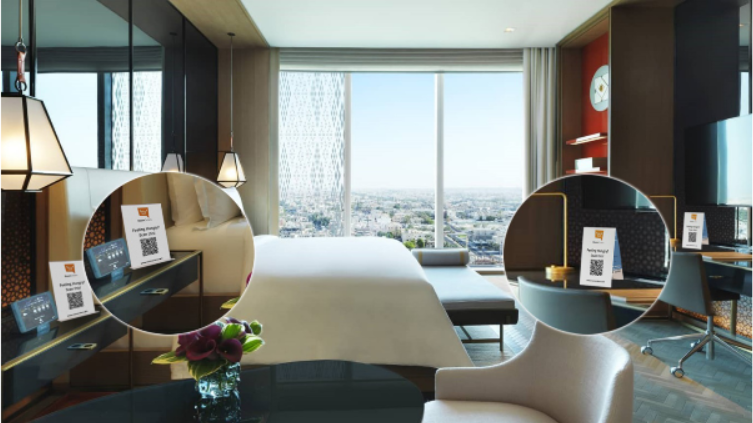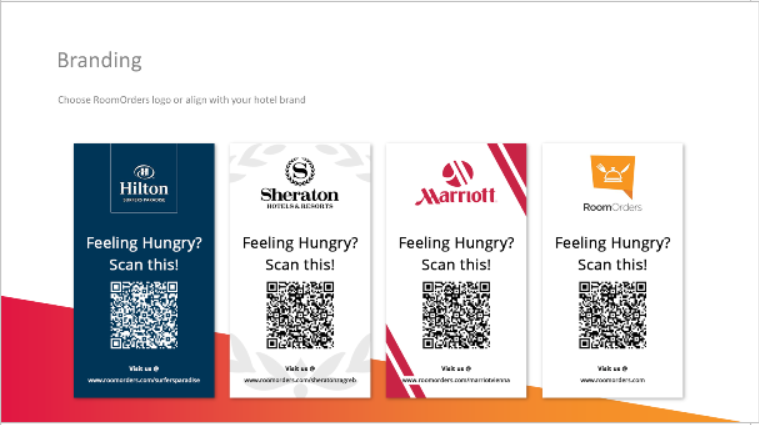Croatian Returnee Reflections: Eugene Brcic Jones, from Sydney to Zagreb
September 13, 2022 - Whisper it quietly, but more and more people are relocating to Croatia from the diaspora. In a new TCN series, we meet them to find out how they are faring, and what advice they have for others thinking of making the switch. Next up Eugene Brcic Jones, who moved from Sydney to Zagreb.
My name is Eugene Brcic Jones, my parents migrated to Australia in 1969 and I was born in Sydney. I’m probably an entrepreneur, but I’m still waiting to cash in on some ventures like a hotel and resort ordering and payments app RoomOrders, or a self-diagnostic kit for viruses, VIBAC. I’m also going to try and build prefab villas on the island of Ugljan if I don’t get ripped off by the Chinese. Prior to doing all these lofty pursuits, I was a business consultant and longtime journalist.

1. You made the switch to Croatia. Tell us a little about the decision process and how long it took for you to get on the plane?
I moved back to Zagreb, Croatia in 2017 with my Aussie wife Michelle, who has a Ukrainian and British background, and two little girls Eden and Emerson. I had previously lived in Croatia during the 90’s war and early 2000s, so it was a return to the old haunts.
We grew tired of the mortgage rat race and wanted to buy back time and a more substantial social life for our young family. We went on a long holiday two years before making the move, travelling all over the place to fall in love with the idea, so there was some leg-work, before coming. However, the main ingredient was developing an infatuation with what we saw and wanting to experiment with a new life.
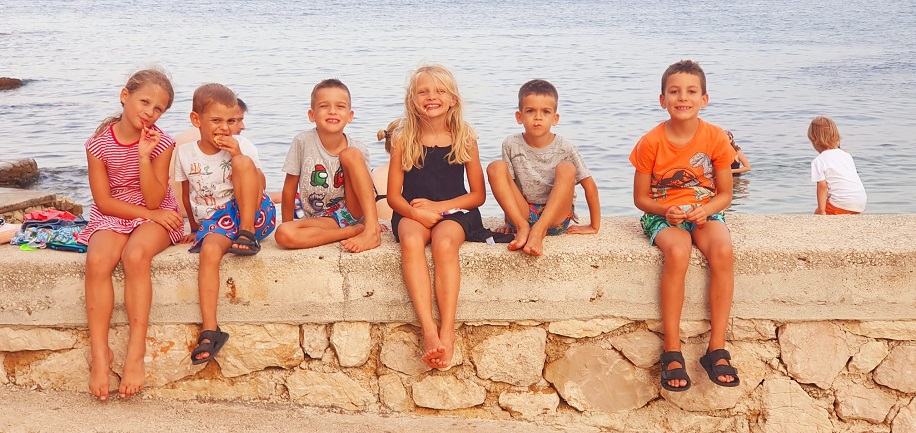
2. What did your family and community back home think of your decision at the time?
They thought we were bonkers and would be back in less than a year. It’s now over 5 years and we seem to be adjusted to this extraordinary place. Luckily, other nutters felt the same and the community of fruitcakes is growing fast. I’m clinging to the notion that over time, we will be declared visionaries or at least pioneers.
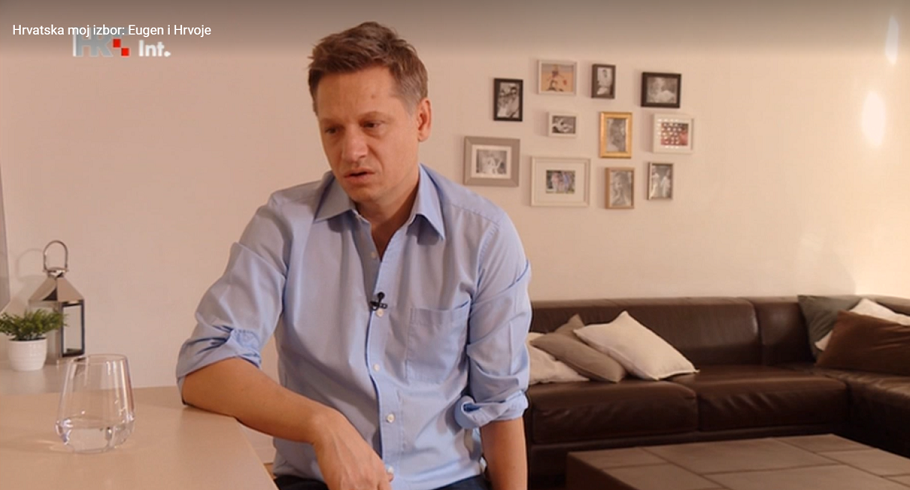
3. Where did you get your information about the realities of Croatia prior to coming?
I had previously lived here, I was a foreign correspondent for the Associated Press for many years, so I got to know and understand the harsh, yet quirky mentality. I had a fair idea of the pitfalls.
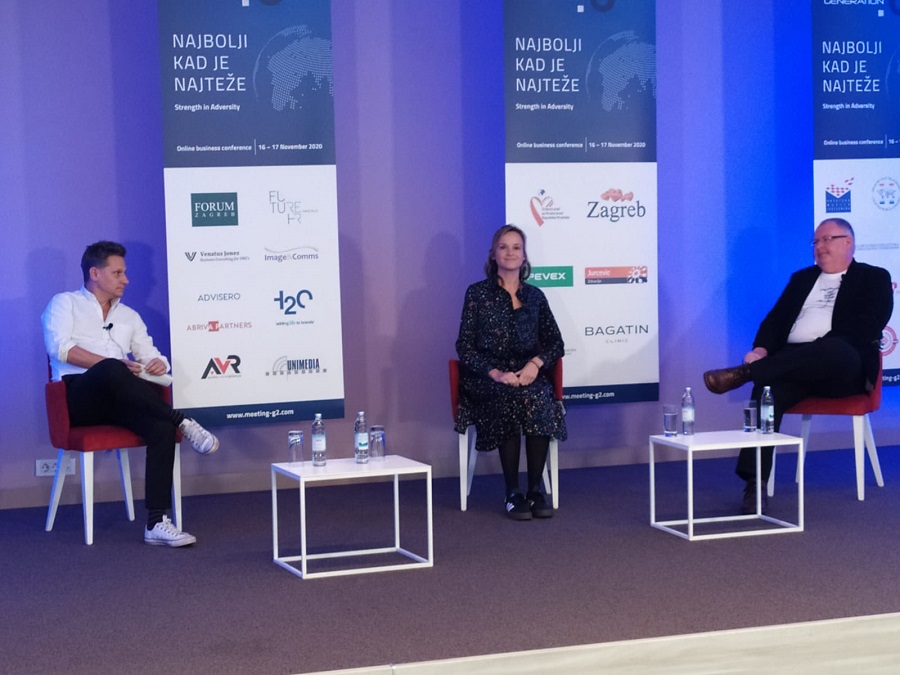
4. What were you most nervous about making the switch? What was your biggest fear, and what was the reality of what you found?
Money. We didn’t want our adventure to make us bankrupt and starve to death. We know work is hard to come by in Croatia, so we had to devise a better plan than a 9 to 5 job. The kids are small, so we knew they would fit in easily, but we needed to be financially secure and that was a major concern that grated on our nerves.
Our biggest fear was that we would not find out footing with finances and that we would bleed money. Of course, that’s exactly what happened. Our tenant in Australia left prematurely and we were vacant for five months, making us sh#t our pants with mortgage repayments from our savings rather than from rental income. To make matters worse, I planned some remote work before slipping into a role with potential business partners and all those opportunities also went pear-shaped.
The reality is that Croatia is a tough place to wing it and even well-laid-out plans can easily go up in smoke. On the other hand, it teaches you to live spontaneously, day-by-day, like the rest of the folk. I still don’t understand how they survive or where their money comes from, especially loads of people driving fancy cars and trendy labels.
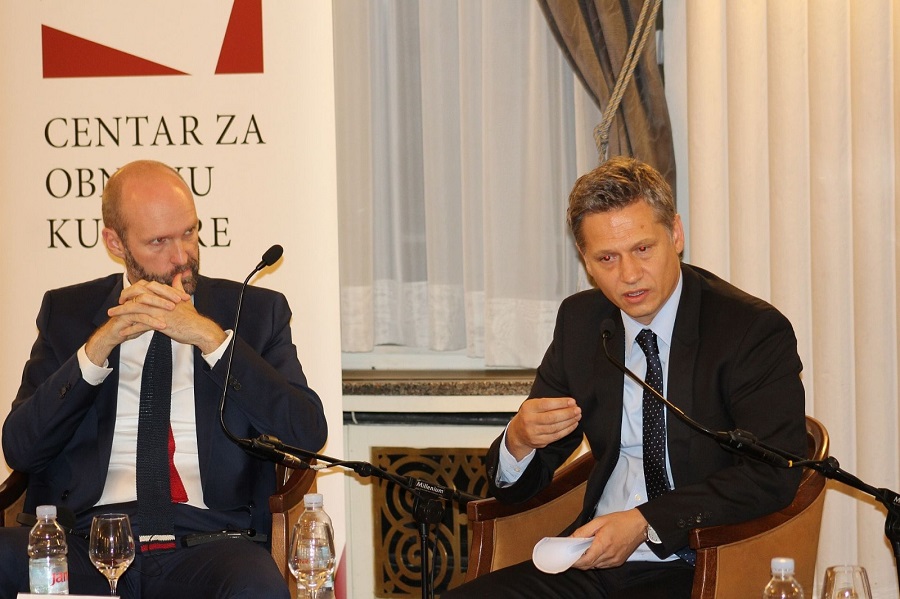
5. Think back to the time before you arrived. What were your perceptions about Croatia and how were they different from the reality you encountered?
My perception was that everybody here really knows how to live, while we from abroad only really know how to work. My reality was exactly that. They make the most of what they got, which usually comes down to sitting down for a coffee and relaxing, having a smoke or two.
Sure, nobody in the world whinges and whines like Croatians, but the mystery remains, how the bloody hell do they live off their meager incomes? It’s almost a form of art – making just enough money to enjoy the simple pleasures of life.

6. You are still here, so obviously the pros outweigh the cons. Tell us about some of the things that you love about being in Croatia, as well as some of the things you don't like.
I love that Croatia is moving forward despite all the corruption and complaining. It’s the perfect place to raise a family and socialize often with friends. It’s safe and has the ideal amount of tradition and contemporary sophistication. I personally love spending winter in Zagreb and skiing with friends and then spending summer again with friends at the seaside. In between there are little getaways, to break the routine. The weather is stable, cold in winter, hot in summer, warm in spring, cool in autumn. The ultimate feeling is the daily relaxation with coffee and conversation. No stress.
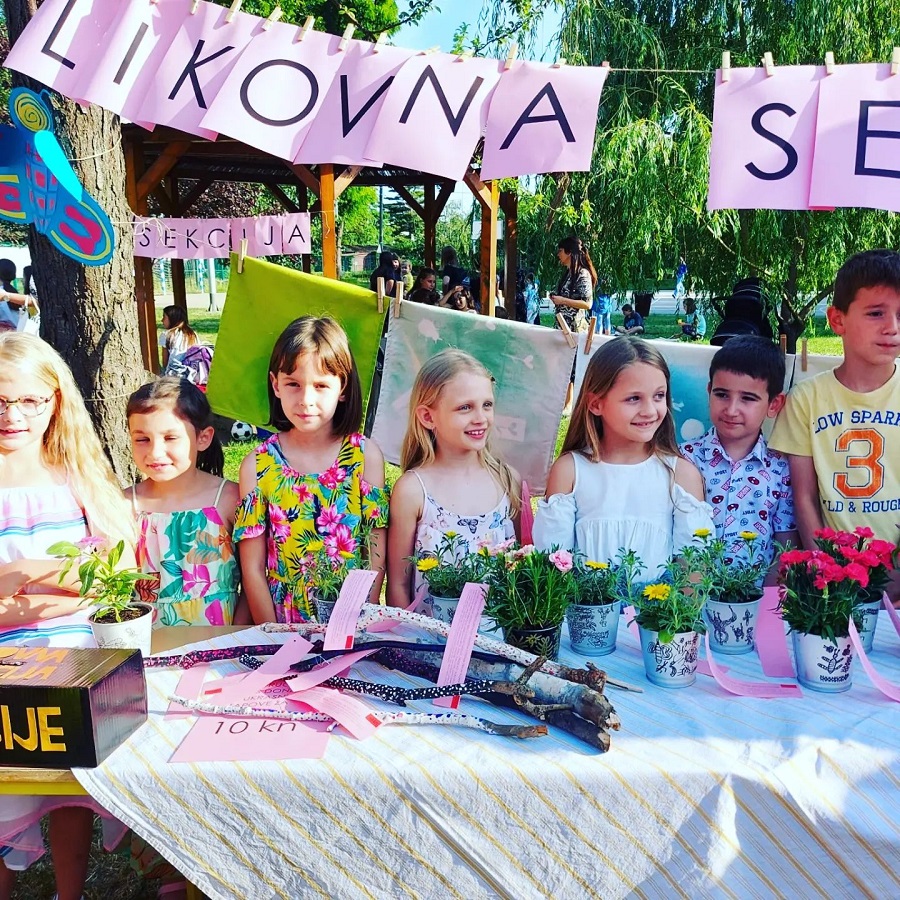
7. What advice do you have for others thinking about making the move from the diaspora?
Don’t be a tight-arse, chicken. Take the plunge. Take a sabbatical. If it doesn’t work out after a year, just go back, you will lose nothing, and gain everything. People should take a lesson out of the pandemic, don’t just be alive, live.
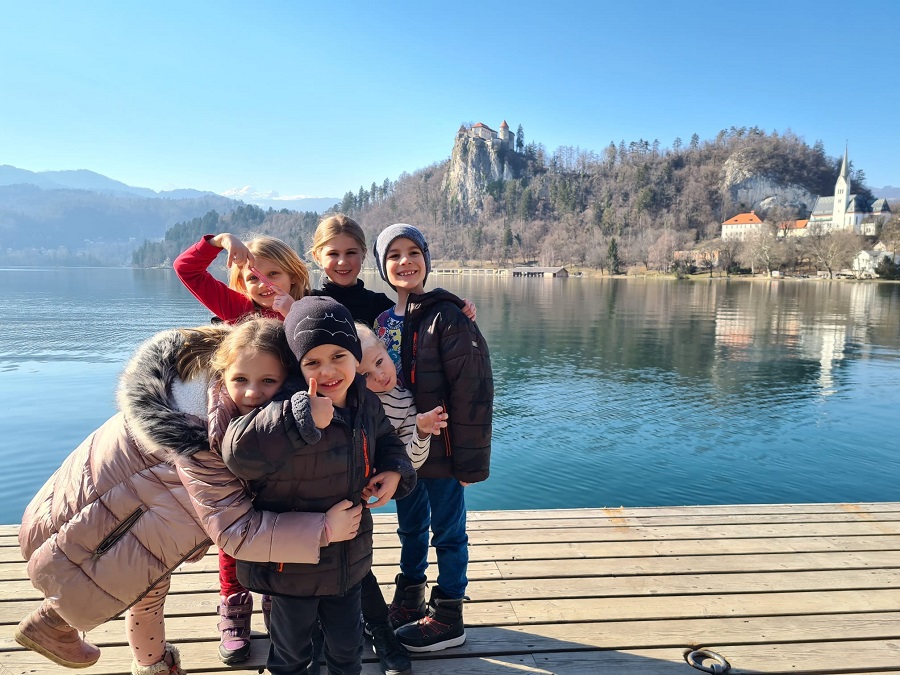
8. How do you think Croatia can better assist those who are looking to return to the Homeland?
Forget about such illusions. Croatia cannot even help itself. It’s a basket case. There are some initiatives like remote working visas for digital nomads that stand out from the malaise. Regretfully, the country and its bureaucracy are still too corrupt and inept to formulate campaigns to benefit everyone with Western money and people. The EU is helping develop structure and functional institutions through various programs and funding, but I would focus on keeping your pants on because the government and crooks will try and take your shirt off if you come here like a naïve deer stuck in the headlights.
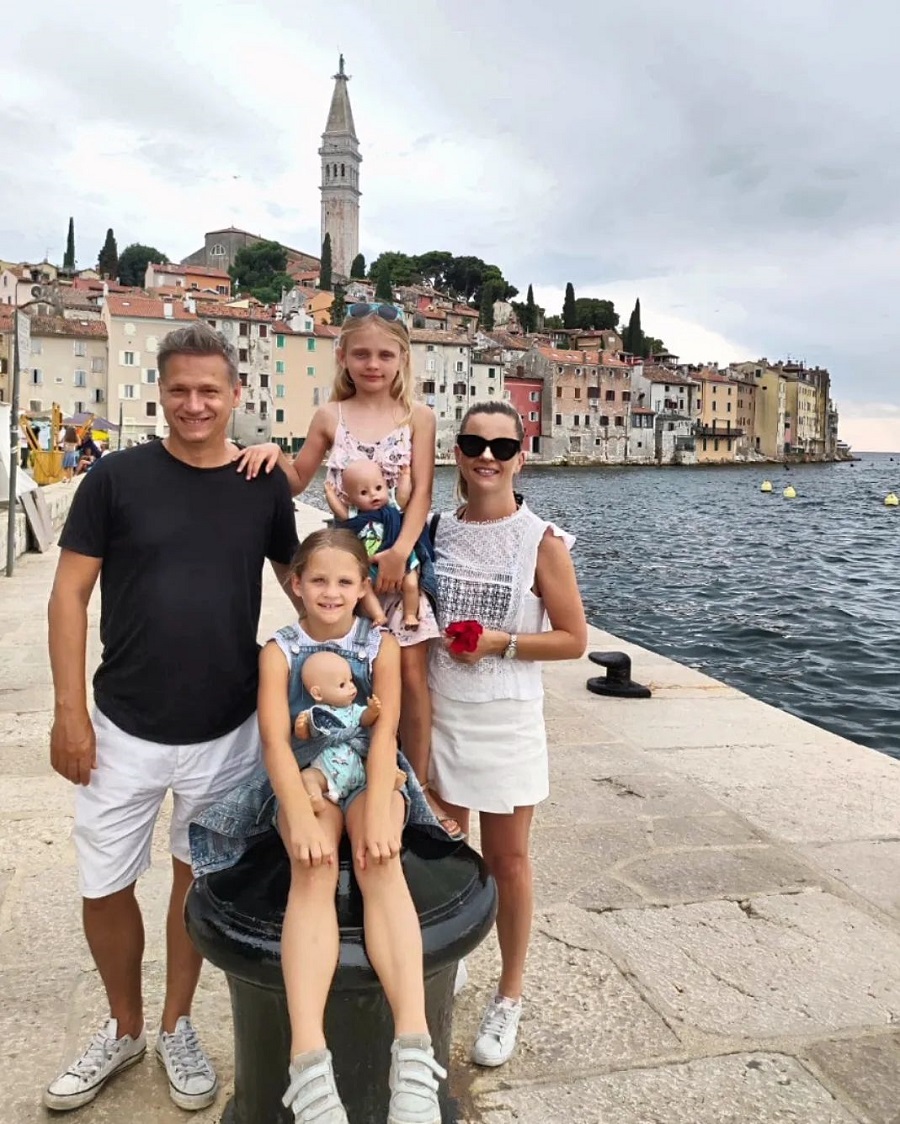
****
Thanks Eugene, and good luck with venatusjones.com roomorders.com
You can follow more stories in the Croatian Returnee Reflections series in our dedicated TCN section.
Would you like your returnee story - positive or negative - to be featured in this series? Contact This email address is being protected from spambots. You need JavaScript enabled to view it. Subject Returnee.
****
What is it like to live in Croatia? An expat for 20 years, you can follow my series, 20 Ways Croatia Changed Me in 20 Years, starting at the beginning - Business and Dalmatia.
Follow Paul Bradbury on LinkedIn.
Croatia, a Survival Kit for Foreigners will be out by Christmas. If you would like to reserve a copy, email This email address is being protected from spambots. You need JavaScript enabled to view it. Subject 20 Years Book
Foreigners Self-Isolating in Croatia: Do You Feel Safer? Eugene from Australia in Zagreb
April 3, 2020 - Do foreigners in Croatia feel more or less safe sitting out COVID-19 here than in their home country, and what are their experiences? A new series on TCN, with Eugene Brcic Jones from Australia in Zagreb as our 18th contributor.
Oxford University recently published some research on government responses to coronavirus which showed that Croatia currently has the strictest measures in the world. While inconvenient, this is a good thing in terms of reducing the spread of the virus, and I am certainly not alone in my admiration of the official Croatian handling of this crisis in recent weeks, both in terms of action and communication.
But what do other expats here think? And how does it compare with the response in their home country? Would they rather sit this one out here or there? In the first of a new series on TCN, we will be featuring expats from all over the world to see what their views are on life in corona Croatia rather than back home. So far we have heard from expats in Croatia from Romania, USA, Ireland, UK, Mexico, Argentina, Spain, Singapore, Holland, Canada, India, Hong Kong and Germany. Next up, Eugene Brcic Jones from Australia in Zagreb. I wonder how much toilet paper he has stockpiled.
If you would like to contribute to this series, full details are below. Now, over to Eugene.
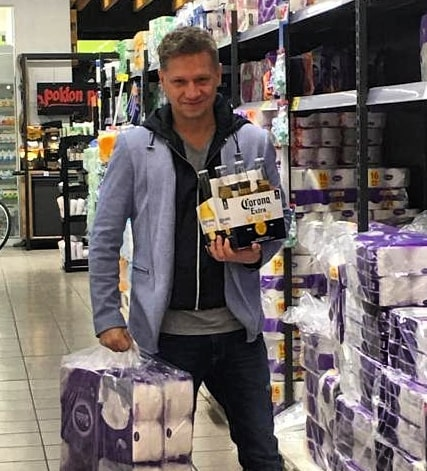
Firstly, how are you? Are you alone/with someone? Tell us a little about your situation and sanity levels.
I’m fine, the hole I’ve been meticulously digging under the building to freedom is nearly done, so my spirits are high. Seriously though, I’m a firm believer that adaptation is one of the most important abilities in this day and age, so I think I’m doing better than most. I’m in Zagreb, in an apartment with my Australian wife Michelle and two kids Eden (6) and Emerson (5). We came to Croatia almost three years ago. My parents came to Croatia from Australia in 1991. They are also in Zagreb momentarily, spending a lot of their time between Zagreb, Zadar and Sydney.
The earthquake did not help our fragile sanity, but it did hammer home the seriousness of the situation, which is surreal and taxing on the mind.
On the whole, I think this crisis will be handled much easier by people who have already started to adapt from old industries to the new digital era, particularly digital natives. As I am a consultant, I’ve had many dry spells, where work was sparse and I would be rendered to solitude at home. I’m no stranger to working from home. My family is also used to being together, rolling around the living room, in each others’ faces for days, just chilling. We travel a lot and are squeezed into hotel rooms. It’s not unusual for us to ditch doing some sight-seeing just to hang lazy in the room, ordering in like sloths.
Accepting change, turbulence in work, is probably more natural for us now, so I think we are doing well under the circumstances. Ask us in a few more weeks, when we start gnawing at furniture and smashing our heads to the wall.
What do you think about the economic measures the government is taking, are they helping your business?
The economic measures are a dud. The government should have acted promptly and properly the first time, but it botched up the job both times. The measures are selective and will be abused by cronies. For example, a company doing well is expected to be increasing profits year on year, it’s these companies that actually pay a lot of taxes and fund the government. Those companies are already likely to have implemented emergency strategies to offset the crisis, they might not even lose revenues, let alone 20% or more than 50%. You cannot punish good or great companies by only funding those who are struggling. There’s no room for sentimentality in economics, you need to stimulate the economy to drive through this tragedy, so it makes sense to throw money into all businesses without discrimination. The strong will make better use of funds, the weak will eventually fail. Hopefully, businesses will pivot to the new realities and new businesses will emerge out of the foliage.
The government was also presented with a golden opportunity to cut off a giant pre-existing tumor, the bloated public sector. This cancer will ruin us if the coronavirus doesn’t get us first. It’s downright idiocy and perversion to ignore this massive time bomb of a problem.
When did you realise that corona was going to be a big issue?
I was travelling a lot before the virus went mainstream, so I was following it on international airwaves. In Croatia, I started reading experts very early, Igor Rudan and the like. But as the problem grew, I started digging deeper into what global experts were saying and extrapolating the possible economic ramifications, which have remained in the backdrop, like a giant lurking elephant.
Now I’m in the phase of indulging conspiracies. It’s entertaining and gets the mind racing. I also don’t want to be the last guy to pack my shit for the Galactica flight to another planet. I’m finding the 5G debate interesting and David Icke and Al Jones just may be onto something. I’m not sure how it all relates to 9/11, the moon-landing and JFK, but I can see a tenuous line is forming.
What is your impression of the way Croatia is dealing with the crisis? How safe do you feel?
Croatia is obviously among the most successful countries in its approach to COVID-19. The measures were timely and strict. We started early and the results are impressive on a global scale. The measures are repressive but they are effective.
I feel safe, almost too safe. The more I see the percentages and ratios, the more it feels our freedoms have been quashed for shreds of security. At the end of the day, in all our frantic fervor and zeal, we may have killed the cow for a few pieces of steak.
When people’s funds start to dry up and they have no more jobs to return to when it all blows over, things could get really desperate. But then, Croatia has lived through worse, maybe the government is placing faith in the amazing resilience of the people.
Now compare that to your home country and how they are handling it. What is Croatia doing better/worse?
Australia is an island, so it has advantages over Croatia. It seems Australia has dragged its feet in terms of self-isolation and it still has not shut down like Croatia. On the other hand, Australia is leading the way again in economic measures with a whopping $130 billion package. Australia was perhaps the only Western economy to ride the 2008 crisis as it bought its way out with giant stimulus packages.
I’m afraid this difference will be a giant boomerang that will smack Croatia in the face. You can’t just shut down a country and close your eyes to the economic fallout. And then, roll out a flawed rescue package. They will have to pay the piper, especially with tourism providing 20% of GDP.
As long as Australia grabs reins of the crisis soon, because rich countries are not used to hardship or uncertainty. It’s much easier for a wealthy country to slide into chaos then it is for Croatia, as our tolerance and fear/panic threshold is soo much higher.
The average Australian is also heavily leveraged, everybody is in debt. If people start losing jobs en-masse, all hell could break loose with a minor trigger. The situation is probably more precarious than it seems.
What about official communications from the authorities, compared to your home country?
Communication is great. They have a polished team and it’s to be expected given Croatia’s experience with war and emergencies. I think Australia was a bit fuzzy, but the government stepped in with the financial panacea and dispelled fear and panic. It opened the communication channels, allowing for gradual suppressive measures against COVID-19.
What's the one thing you wish you had taken with you into self-isolation?
Nothing. I wish I got away to Zadar if this thing spills over into summer, which it is increasingly likely to do. I could relax, go to the beach with the kids. Fortunately, you can swim anywhere on the Adriatic, so keeping away from other swimmers should not be a problem in Croatia.
One thing you have learned about yourself, and one thing you have learned about others during this crisis.
I was in Croatia during the entire war, from start to finish, so I can draw lots of parallels. In these times you will witness how people deal with trauma, the different coping mechanisms people rely on to get them through.
Right now, I am rolling on the floor with the memes swapped around on social media, particularly on Whatsapp with mates.
People are far more resilient than they know, humans can adapt to anything.

Thanks, Eugene, stay safe and see you on the other side.
TCN is starting a new feature series on foreign experiences of sitting out covid-19 here in Croatia compared to their home country. If you would like to contribute, the questions are below. Please also include a para about yourself and where you are from, and a link to your website if you would like. Please also send 3-4 photos minimum to This email address is being protected from spambots. You need JavaScript enabled to view it. Subject Corona Foreigner
If you would be interested to record a video version for our partners www.rplus.video please let us know in the email. Thanks and stay safe.
Foreigners Self-Isolating in Croatia: Do You Feel Safer Than in Your Home Country?
Firstly, how are you? Are you alone/with someone? Tell us a little about your situation and sanity levels.
What do you think about the economic measures the government is taking, are they helping your business? (PLEASE IGNORE IF THIS DOES NOT AFFECT YOU)
When did you realise that corona was going to be a big issue?
What is your impression of the way Croatia is dealing with the crisis? How safe do you feel?
Now compare that to your home country and how they are handling it. What is Croatia doing better/worse?
What about official communications from the authorities, compared to your home country?
What's the one thing you wish you had taken with you into self-isolation.
One thing you have learned about yourself, and one thing you have learned about others during this crisis.
TCN has recently become a partner in Robert Tomic Zuber's new R+ video channel, initially telling stories about corona experiences. You can see the first TCN contribution from this morning, my video from Jelsa talking about the realities of running a news portal in the corona era below. If you would like to also submit a video interview, please find Robert's guidelines below
VIDEO RECORDING GUIDE
The video footage should be recorded so that the cell phone is turned horizontally (landscape mode).
There are several rules for television and video news:- length is not a virtue- a picture speaks more than a thousand words
In short, this would mean that your story should not last more than 90 seconds and that everything you say in the report should be shown by video (for example, if you talk about empty streets, we should see those empty streets, etc.).
How to do it with your cell phone? First, use a selfie camera to record yourself telling your story for about a minute and a half. Ideally, it would be taken in the exterior, except in situations where you are reporting on things in the interior (quarantine, hospital, self-isolation, etc.). Also, when shooting, move freely, make sure everything is not static.
After you have recorded your report, you should capture footage that will tell your story with a picture, such as an earlier example with empty streets.
One of the basic rules of TV journalism is that the story is told in the same way as a journalist with his text. Therefore, we ask you for additional effort. Because we work in a very specific situation, sometimes you may not be able to capture footage for each sentence of the report. In this case, record the details on the streets: people walking, the main features of the city where you live, inscriptions on the windows related to the virus, etc.
The same rules apply if you are shooting a story from your apartment, self-isolation, quarantine. We also need you to capture footage that describes your story.
When shooting frames to cover your reports, it is important that you change the angle of the shot (in other words, shoot that empty street from several angles). Also, when shooting a detail, count at least five seconds before removing the camera to another detail.
The material should be about 5 minutes long (90 seconds of your report + frames to cover your story).
After recording everything, send us to Zagreb, preferably via WeTransfer to This email address is being protected from spambots. You need JavaScript enabled to view it.
Meet Croatian Startup RoomOrders, the 'Uber' of Hotel Room Dining
May 26, 2019 - A Croatian app is sitting quietly on the desks of some of the world’s most prolific investment offices, but unlike the pile of would-be unicorns, this start-up for luxury hotels is not gathering dust. Meet RoomOrders.
Leading hotel IT industry influencers The Tech Move reported today “Poor ROI & low demand has seen hotels discontinue their room service offerings, but at last week's #IHTF we met a Croatian start-up, RoomOrders, Inc, that claims it is ready to “Uberise” #hotel room service.”

After listing the solution’s features, they asked, “With Hilton & others coming on board, could this be an in-room dining disruptor?”
Indeed, RoomOrders has soft-launched in leading branded hotels like Hilton and Sheraton on three continents so far, but is so fresh on the market that its three months free period has yet to expire and thus has no income to report – apart from its pilot case Hilton Boston, US, where in-room dining order value shot up by over 30%.

“We’ve been trying to keep a lid on it, but news recently leaked and now we should introduce RoomOrders.com and explain what it’s all about,” said global head of marketing Eugene Brcic Jones, hinting that the company was expecting to announce some titillating news regarding funding in coming weeks.
Brcic Jones claimed the response at their first trade fair was “overwhelming.”
“It opened talks with partners for integration into hotel management systems as well as with venture capitalists, particularly from Asia,” he said.

OK, so what’s it all about then?
RoomOrders is basically an e-menu. A cloud solution for hotels which enables guests to order in-room dining from an illustrated digital menu, right off their own smart phones. All guests have to do, is scan a QR code with their phone camera and order much like they would any other popular food delivery service.
“The idea was to be an Uber - a solution tailored to the modern digital native, to the average person who cannot live without their smart phone and expects any kind of business they have with others to gel seamlessly with their current lifestyle and habits,” said Viktor Matic, owner of software company Ingemark and co-founder of RoomOrders.
The beautiful thing about start-ups is that they are unpredictable. They don’t just emerge from flashy corporate buildings or state-of-the-art warehouses in bustling developed cities, the innovation could emerge from a garage or a teenager’s bedroom in the slums of a third-world town. Usually all that is needed is an internet connection and computer device.
A tourist haven, with over 1000 islands in the pristine Adriatic, Croatia is a fitting place of origin for a hotel app. Although registered in Delaware, US, up to 30 developers in Croatia’s capital Zagreb had a hand in creating RoomOrders, churning through almost two years and two million dollars to get it to market. As well as in-room dining, the app has marketing features (user-generated content, like social media location and post sharing) and feedback analytics to help hotel quality assurance and continued improvement.
“We decided to take a chance on it because it was too hard to say no,” said Sheraton Zagreb General Manager Mario Susak. “There is no capital outlay and there is no disruption to our existing operations, so it makes sense to move to a solution which will phase out fixed telephones and improve guest experience. The risks were zero, potential high.”
Hilton Boston General Manager Ed Mroz said that RoomOrders helps solve the dilemma of outsourcing room orders or keeping it in-house as studies showed most trends of eliminating room service were a deal breaker for the vast majority of luxury hotel guests. “It’s no secret that it’s hard to maintain profitability of room service, RoomOrders offers several clear value-adds and improves bottom line for us.”
RoomOrders streamlines current processes in ordering food and beverages to hotel rooms. As it communicates directly to the hotel kitchen or restaurant digitally in any chosen language, it eliminates miscommunication with a concierge or receptionist, who may also not be familiar with the offering to cross or up-sell.
Seems easy, so why didn’t anybody else think of it?
“It’s not so simple to make a simple solution,” said architect of RoomOrders and co-founder Harris Dizdarevic. “In fact, the more simple and intuitional the solution, the more technically demanding the task to create it.” Dizdarevic explained that his team noticed that hotels were neglecting one of the most popular associations with hotels, alongside accommodation, and tended to be hotel-centric.
“They’re looking at internal problems that need to be resolved to make a guest’s stay more pleasant through the prism of the hotel,” said Harris. “We did the opposite,” he added. “We looked at the behaviour of guests and adapted our software to harmonise the relationship between the needs of a guest and the needs of the hotel.”
In-room dining hasn’t changed since it was introduced more than 50 years ago Brcic Jones said. He thinks the niche segment of the hotel industry, which brings in billions of dollars through some 190,000 branded hotels worldwide, is ripe for disruption.
“Guests don’t want to be trapped by hotels, or pledge loyalty or download apps,” he maintained. “They don’t want their world to stop at the doorstep of a hotel. They want an extension of their world inside the hotel, to continue doing everything through their own personal devices as they would out on the street, anywhere in the world. Seamlessly”
If early traction is anything to go by, RoomOrders appears to have done it.
The platform trialled in Hilton Boston six months ago and is now launching in Hilton Belgrade and Hilton’s flagship Asia-Pacific hotel, Hilton Sydney, at the end of the month. The hotels will add to Hilton Zagreb and Sheraton Zagreb as well as five local branded hotels in Dubrovnik.
More than a dozen individual hotels are expected to sign up by the end of June with a breakthrough on the cards with two US Real Estate Investment Trusts controlling well over 100 popular luxury hotel brands soon after. Success in Australia with a leading international chain is expected to lead to rapid expansion across Asia Pacific, according to assurances made to RoomOrders, said Matic.
Learn more about RoomOrders from the official website.
Looking for the latest in Croatian innovation? Check out the dedicated TCN Made in Croatia section.
Successful Diaspora Returnee Stories: Eugene Brcic Jones, Venatus Jones, Zagreb
The 2nd International Conference on Diaspora Tourism opens in Split on May 17, 2019. In the build-up to the conference, TCN meets some of the returning diaspora who have made a success of life in Croatia. Next up, Eugene Brcic Jones.

With so many young people emigrating from Croatia due to lack of opportunity, there are a number of the Croatian diaspora looking to move in the opposite direction and return to the Homeland. Few actually make the move, for a variety of reasons: the uncertainty of what awaits, lack of much available information of the realities of the process and experiences, and a reluctance to move from successful Western economies to the struggling Croatian economy. Meet one man who has been a returnee not once but twice.
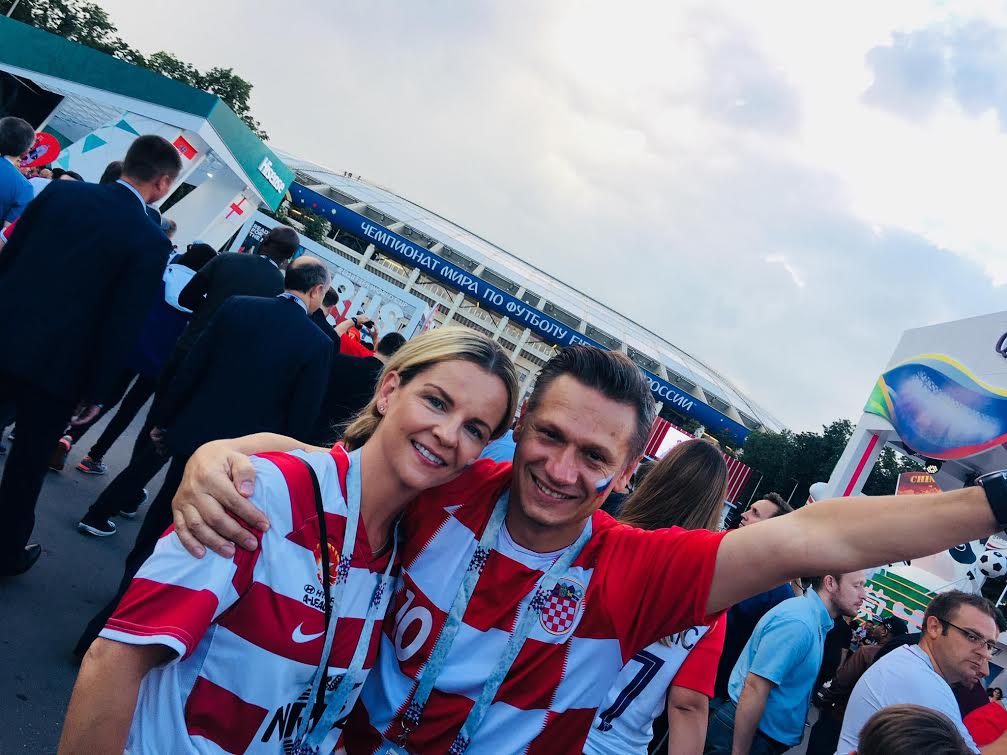
1. Born in Australia, returned to Croatia, something that many diaspora dream of doing. Tell us briefly about your journey.
Hi, my name is Eugene and I’m a Croatia addict.
I’ve been calling myself a ‘serial returnee,’ as it’s not the first time I’m back here. I’m a second generation Croatian who previously returned in 1991, amid the worst bloodshed in Europe since WWII.
I returned to Croatia again two years ago, after a 7-year stay in Sydney, with my Aussie wife Michelle and two girls, Eden 5 and Emerson 4.
It’s probably understandable for a young, single guy to enjoy living in Croatia but it’s more like a disturbing medical condition for a family to make the move while droves of others are heading the other way, so I can understand the curiosity.
The idea of moving to Croatia evolved after a 3-month family holiday four years ago. I hooked Michelle and the kids onto my addiction after taking them from the tip of the Adriatic to the bottom, from Rovinj to Dubrovnik, with long stays in Zadar and particularly Zagreb, where I lived and forged amazing memories and friendships.

Australia was becoming a bore, a tiresome rat-race and we wanted to break from the mold, do something different, a lasting adventure. The work-life balance myth in Sydney wasn’t working for us and we didn’t want to spend our lives as mortgage slaves. We toyed with equatorial countries that would allow us to live off a passive income from renting our home, places like Panama, Costa Rica or southern Italy and Spain tantalized our fancies. The kids would become bilingual, maybe home-schooled, it was all just the stuff of dreams at first. Then Michelle suggested Croatia, and before she could take it back I booked our tickets and packed our bags.
OK, maybe there was more thinking, and Excel spreadsheets, but why let the truth get in the way of a good story?
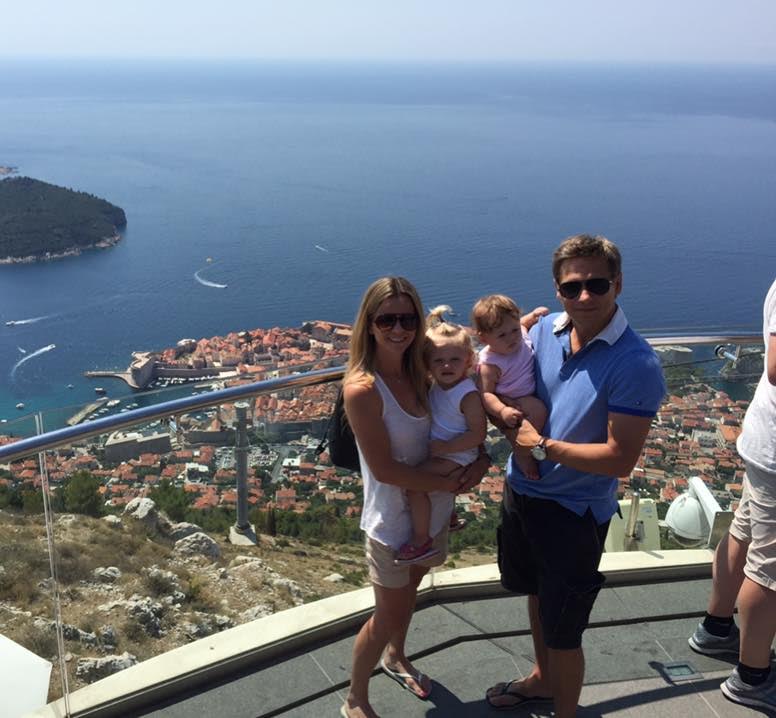
2. Looking back, what were your hopes, expectations, and fears about moving to Croatia?
My greatest fear was that I’d bankrupt the family and my wife and kids would stick their middle finger up at me at President Franjo Tudjman airport and abandon me. Two years later, I still have this fear, but I use it to motivate me.
For some stupid reason I expected that everything I touched would turn to gold, but things sort of went pear-shaped in the first year. I couldn’t get the sort of work I wanted to ensure a cosy life, so there was a lot of anxiety.
In the end, I decided to start my own business, a consultancy for small to medium-sized enterprises (SMEs), and things gradually started to turn. Basically, I started treating Croatia like it was Australia, a country with no free lunches and I buckled down and worked my nuts off to find projects and clients.

3. How supportive was your Croatian community back home at the time?
They were very supportive – šatro! My friends and cousins back in Australia were making bets how quickly I’d fall flat on my face and the whole bankrupt and abandoned scenario was odds on favourite in less than 6 months. No one expected a lucky streak this long, so there’s a lot of bitter gamblers out there sitting on the sidelines of life.
Decisions like returning to Croatia are really high stakes, you really have to know your limits and hedge your bets. I don't think you should bank on support for a radical choice like moving to Croatia, your loved ones will tell you to get your head checked.

4. What were the main differences in what you expected to find in Croatia and the reality of living in Croatia?
The main difference in Croatia is that you buy back a lot of time, which is essentially the most precious thing we have. Time with the people you love, the things you love doing. For me, it’s family and friends.
In Australia, we sacrifice a lot of time to make a living, commuting to work, working some drudgery for a wage, and then maintaining the wealth by shrewd investments - often working on top of work again, like gardening, extending your home or making renovations. It’s all about constantly creating value, amassing wealth, preserving status. The competition and accompanying stress is relentless.
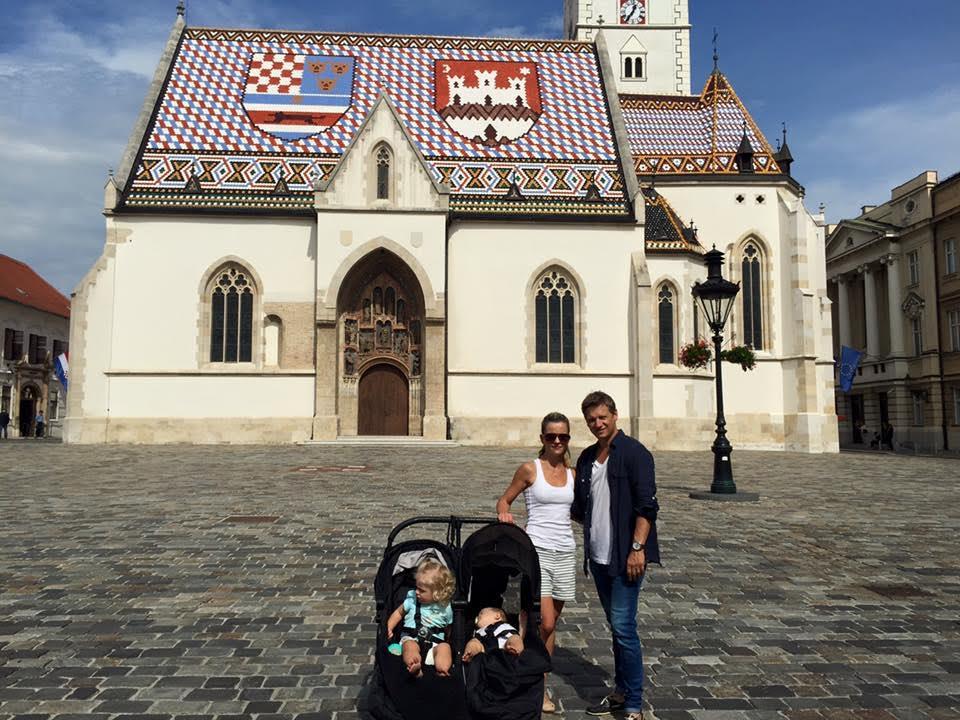
5. Many diaspora think of returning, but few do. In truth, there is little information out there about real-life stories and help/info about the process. What advice do you have for those who are thinking about making the move?
I’m not sure it’s possible to make a fully informed decision. It’s always going to be an emotional, gut or knee-jerk response regarding a place like Croatia. Lots of people have tried, given it their best shot and few have made it, so you can forgive people for not even entertaining the risk.
If you were moving from Australia to the US or Switzerland you would use common sense, crunch some numbers and probably be able to anticipate or rely on many things, like work opportunities, government and institutions, especially the legal system. But Croatia is a different kettle of fish. It really is like an addiction, an irrational attraction that pulls you like a magnet. You move to Croatia in spite of knowing the government and its bodies are useless and corrupt.

My advice would be to expect the worst and be positively surprised when the worst doesn't transpire. Plan your finances, go for a trial run, a year off, a sabbatical. Try house swaps, there's some really cool opportunities nowadays that will save you a bundle and allow you to experiment. You only live once, so trying a new landscape, new culture, language and lifestyle will provide permanent memories to relive, even if you pencil it down as a fail and return. It's all about unique experiences afterall, I think.
6. How were you perceived in Zagreb as foreigners/diaspora moving back - was the welcome warm?
There is a notion that diaspora are a bunch of nationalistic morons. To be fair, a lot of us from diaspora are a bunch of morons and our reputation is not as stellar as we imagine.
However, we have a lot of ingrained experience with genuine democracy and free-market economies and that is valuable currency in Croatia. Smart people will respect you and be welcoming. It will be easy to strike up friendships with people in the same trade or social status.

Good people gravitate to each other, if you are a cool dude people will quickly notice this about you and you will establish a great circle of friends soon. We have so much to learn from each other. Being conceited about being from the West might work short-term but won't play well in the long run.
7. Through a lot of hard work, you have been very successful, while many foreigners have given up and left Croatia. What are the keys to success in doing business in Croatia in your opinion?
Like anywhere in the world, the main formula for success is hard work. We are lucky that we grew up in market economies and understand how rags-to-riches stories evolved. Our parents are likely examples, so it’s obvious to us that there is no substitution for hard work. Talent or skill and luck all play a part, but hard work is the glue that holds it all together. Optimism is also key. It’s a strong motivator and inspires self-fulfilling prophesies.

It is tragic that so many people have been burnt, my family included. More or less everybody I know from abroad has been taken for a ride. I see now that we are not without blame. We have been gullible and stupid. We misplaced our trust in a system that is still plagued by the legacy of Communism. This system is riddled with corruption and nepotism and despite reforms, it’s still in transition and hazardous.
It’s important to exercise extreme caution and avoid dealing with the government as much as possible. Fortunately, we have an edge over locals working in the private sector given our customer-focused approach to business.
There is also the EU market and various funds available that make it a fruitful period to be in Croatia from a business perspective.
It’s a global economy and working from Croatia gives you the best of both worlds if you have goods and services to sell. One of my clients is a start-up in the hotel industry, RoomOrders.com, and we have expanded to three continents, through leading hotel brands like Hilton and Sheraton. A previous client, Museum of Illusions, is in over 20 cities around the globe and is the world’s fastest-growing museum chain.
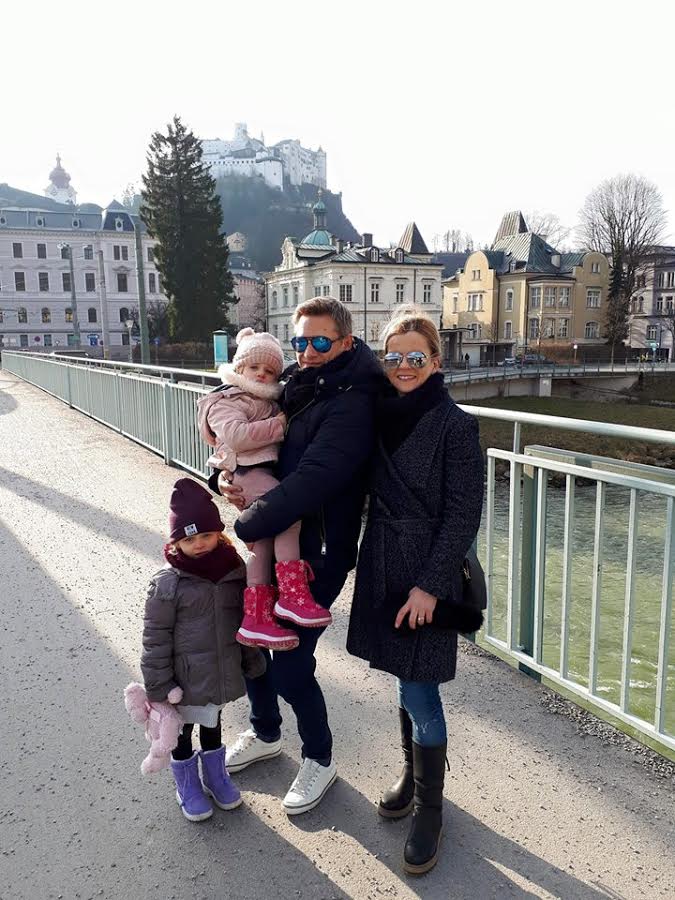
8. What is the diaspora community like in Zagreb and how integrated is it with locals?
Zagreb is an increasingly cosmopolitan city. It has a strong expat community and the diaspora is strong and integrated with both the local and expat community. There is a lot of variety, clubs and interest groups. The degree to which somebody wants to assimilate is completely individual, you can immerse yourself fully, or be a butterfly, we are spoilt for choice in Zagreb. I’m proud to be living in Zagreb when I see it bustling with non-traditional visitors from Korea, Japan, Americas, as well as the range of cuisine on offer, from curries, tapas, sushi to kebabs and fajitas.
9. And finally, a word on this conference. What are you hoping to get out of it?
The conference will feature some high fliers from diaspora, people who have put in the hard yards and proven that success is possible in Croatia. I’m looking forward to hearing their accounts, their trials and tribulations. It will be a great opportunity to compare scars and trade war stories. There are more and more conferences of this type, so I’m excited about meeting new friends, gaining new insight and generally learning more about Croatia’s business environment in diverse industries from people just like me.
You can connect with Eugene Brcic Jones via his business website Venatus Jones.
For the full programme at the 2nd International Conference on Diaspora Tourism (in English and Croatian), click here.
For more on the Croatian diaspora, check out the TCN dedicated section.


